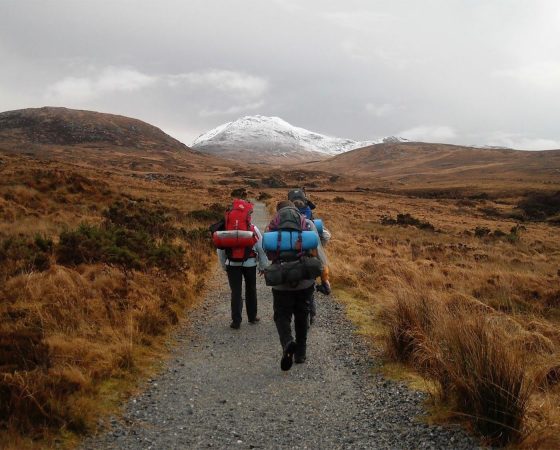If you’re ready to lace up your hiking boots and pack your backpack for a hiking or backpacking trip, be sure that you’ve taken the necessary preparations to stay safe. While overpacking weighs you down and slows you down, underpacking can compromise your safety. You want to ensure you have the appropriate safety gear and attire, including shoes and backpack. You also want to leave unnecessary items at home.
Clothing
When choosing clothing, avoid cotton because it keeps moisture close to your skin. Also, always bring sunglasses and a weather-appropriate hat. Sunglasses should be worn in the summer or snow, as snow blindness is a serious issue. Even if the weather forecast isn’t calling for rain, bring rain gear and extra clothing. To quickly and easily adjust to changes in weather and activity levels, dress in layers.
Finding the appropriate footwear is important. Trail or hiking shoes are fine for short day hikes, but longer hikes on technical terrain or short backpacking trips require the use of hiking boots. Hikes with heavy loads or multi-day trips deep into the backcountry require backpacking boots. The right fit is critical. “The difference between blisters and bliss is taking the time to get a great fit,” says REI. You must break your boots in before your first trip.
Choosing the right backpack is also vital. Your backpack should be comfortable and be the appropriate capacity, which will be determined by the length of your trip, if you’re doing gear-intensive activities like climbing and fishing, the season or weather, and your personal needs. The three major categories of backpacks are overnight packs, weekend packs, and expedition packs. Ensure that the backpack fits your body correctly.
Safety Gear
The ten essential items that you need for any hiking adventure include a map, compass, appropriate clothing, extra food and water, flashlight or headlamp, matches/firestarter, first-aid kit, whistle, rain gear, and pocket knife. Other important items include food, extra socks, watch, trash bag, tarp or space blanket, insect repellent, sunblock, guidebook, personal medications, cord/rope, gaiters, and extra batteries.
While a GPS unit is helpful, you still need a map and compass as backups. Prepackaged first-aid kits for hikers are available at most retail stores, but you may need to supplement them. You can also pack your own first-aid kit. Experts agree that all hikers should take a Wilderness First Aid course. If your trip will be overnight, you’ll also need to add a sleeping bag, foam pad, tent, stove, fuel, pots, cup, bowl, eating utensils, water purification, and extra clothing. Additional items are necessary if your trip is in the winter, above the treeline, or in avalanche terrain.
Packing Light
Packing extra clothes is important, but don’t pack a change of clothes for every day of the trip. It adds unnecessary weight and volume to your backpack. As you already know, you should avoid wearing cotton. Jeans are made of cotton and aren’t appropriate attire for hiking or camping, so leave them at home.
Leave the road map behind, as it won’t be helpful for trails. Most parks offer maps and guidebooks for local trails. When packing your first-aid kit, choose one that’s appropriate for the length of your trip, the size of your group, individual medical needs, and your medical knowledge. “If you don’t know how to use a first-aid item—like a suture kit—you probably shouldn’t be carrying it,” says Backpacker.
You want to avoid bringing multiples of items; it’s unlikely that you’ll need three water filters. Lastly, leave valuable, impossible-to-replace items – like wedding rings and electronics – at home. However, since you’ll be gone for an extended time (and leaving all of your valuables behind), it’s important to take home security precautions before your trip. Lock all doors and windows and secure the garage. You may even consider hiring a house sitter, but at the very least, alert your neighbors of your trip.
Hiking is a great way to experience nature, tune into yourself, and get some exercise. However, if you’re not properly equipped for your trip, you could risk your safety. Life is an adventure and challenging yourself with a hike can be fun, but be safe out there by being prepared.
Guest Contributor:

